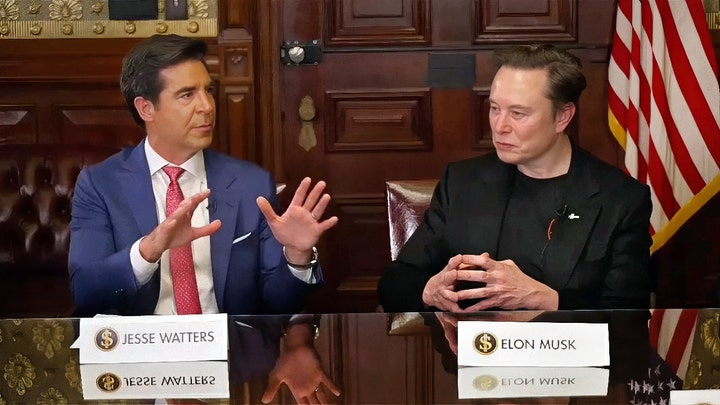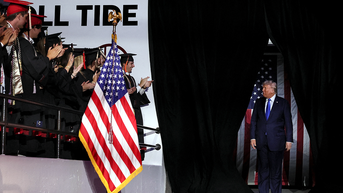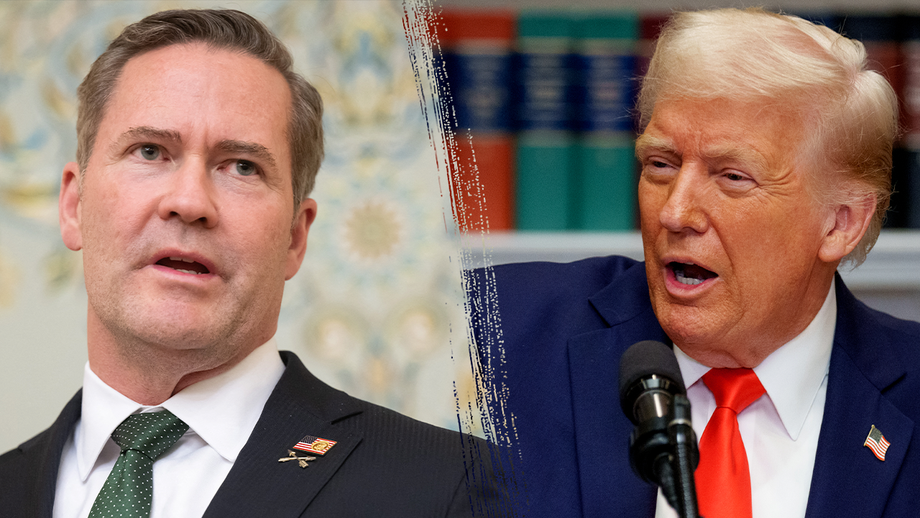Hold onto your hats, gamers, because the real world has entered “Victory Day” territory – and it’s more controversial than any in-game boss battle.

Yesterday, former President Trump declared May 8th as “Victory Day” commemorating the end of World War II in Europe, marking his latest foray into history rewrites and sparking a firestorm of debate. While many see it as a celebration of a pivotal moment in history, others are questioning the motives behind this declaration, especially with the “Going to start celebrating our victories again!” tagline.

Evolving Political Landscapes in Games: How This Declaration Might Influence In-Game Narratives

Trump’s declaration of ‘Victory Day’ presents a unique challenge for game developers navigating the increasingly complex intersection of politics and entertainment. Historically, games have often served as platforms for exploring alternative histories or fictionalized versions of real-world events. However, the real-world implications of this declaration, particularly its potential to reshape national identity, necessitate a more nuanced approach to representing such sensitive historical narratives within gaming.
Games with historical settings, such as World War II shooters or strategy simulations, may find themselves grappling with the ethical implications of incorporating this new ‘Victory Day’ concept. Developers will need to carefully consider how to portray this event within their games, ensuring that it is presented accurately and avoids glorifying or minimizing the complexities of the war.
Furthermore, games that explore contemporary political themes could see their narratives directly impacted by this declaration. Political strategy games, for example, might incorporate this event into their gameplay mechanics, forcing players to consider the political ramifications of celebrating a specific historical event in a potentially divisive manner.

The Gaming Community’s Response: A Spectrum of Reactions, from Enthusiasm to Outrage
Gamestanza anticipates a wide range of reactions from the gaming community to Trump’s declaration of ‘Victory Day’. While some players, particularly those who align with the president’s political stance, may embrace the celebration of American victory, others may view it as a blatant attempt to rewrite history and exploit nationalistic sentiments.
On social media platforms and gaming forums, discussions are already underway, with players expressing their diverse viewpoints. Some gamers are concerned about the potential for the declaration to be used to promote a narrow and potentially harmful interpretation of history. Others worry about the potential for increased polarization within the gaming community itself.
This diverse range of responses highlights the importance of open and respectful dialogue within the gaming community. It is crucial to foster an environment where players can engage with these complex issues critically and thoughtfully, while also respecting differing viewpoints.

The Ethical Considerations: Gamifying History and the Potential for Misrepresentation
The gamification of historical events, particularly those as sensitive as World War II, raises significant ethical questions. The potential for misrepresentation or manipulation of historical facts within a game environment is a serious concern. Developers must prioritize accuracy and historical context when depicting historical events, avoiding sensationalism or the simplification of complex historical narratives.
It is also important to consider the potential impact of these representations on players, particularly younger audiences who may lack the critical thinking skills to discern fact from fiction. Developers have a responsibility to ensure that their games present history in a balanced and responsible manner, avoiding the perpetuation of harmful stereotypes or historical inaccuracies.
Transparency in game development is crucial. Players have the right to know how historical events are being portrayed and to understand the underlying motivations and biases that may influence these representations. Developers should be open about their sources and their approach to historical accuracy, engaging with historians and other experts to ensure the integrity of their historical portrayals.

Beyond the Headlines: Trump’s Victory Day and the Future of American Identity
Nationalism & Patriotism: The Fine Line Between Celebration and Exclusion
Trump’s declaration of ‘Victory Day’ raises concerns about the potential for heightened nationalism and its impact on American identity. While patriotism and national pride are fundamental to the American experience, excessive nationalism can often lead to the exclusion and marginalization of minority groups or those who hold differing viewpoints.
In the context of gaming, this could manifest in the portrayal of characters or narratives that reinforce nationalistic stereotypes or demonize those perceived as “outsiders.” It is essential for developers to avoid perpetuating harmful narratives that contribute to social division and intolerance.
Rewriting History: The Dangers of Selective Memory and its Influence on National Discourse
The selective celebration of historical events, such as focusing solely on American victory in World War II while downplaying the contributions of Allied forces or the complexities of the war itself, can lead to a distorted understanding of history. This selective memory can be used to promote a particular political agenda or to justify past actions, potentially hindering open and honest conversations about history’s complexities.
Gamers have a responsibility to critically evaluate the historical narratives presented in games and to question any attempts to simplify or sanitize history. Developers should strive to present a more nuanced and comprehensive view of historical events, acknowledging the multiple perspectives and complexities involved.
Building Bridges or Fanning Flames: The Potential Impact on International Relations and Global Gaming Communities
Trump’s declaration of ‘Victory Day’ could have far-reaching implications for international relations, particularly in the context of global gaming communities. The politicization of historical events can lead to increased tensions and divisions between players from different countries.
Developers who operate in international markets must be mindful of the potential for their games to be perceived as promoting a particular national agenda. It is important to create games that foster cross-cultural understanding and respect, avoiding narratives that reinforce stereotypes or promote conflict.
Conclusion
So, Trump’s back at it again, rewriting history and turning a solemn occasion like Victory Day into a political rally cry. The former president, never one to shy away from controversy, declared May 8th “Victory Day” for World War II, urging Americans to “start celebrating our victories again!” This move, predictably, has ignited a firestorm of debate. While some applaud his attempt to revive national pride and remembrance, others decry it as a dangerous distortion of the past, a hollow attempt to score political points.
Ultimately, the significance of Trump’s declaration goes beyond the mere date on the calendar. It reflects a broader cultural shift, a growing tendency to weaponize history and manipulate narratives for political gain. This trend, if unchecked, threatens to erode the very fabric of our shared memory, leaving us vulnerable to manipulation and misinformation. As we move forward, it’s crucial to engage in critical reflection, to scrutinize historical narratives, and to ensure that our understanding of the past is grounded in truth and empathy, not political expediency.
Victory Day should be a time for solemn remembrance, a moment to honor the sacrifices made and the lessons learned. Let us not allow it to be transformed into a platform for partisan divides and historical revisionism. The future of our democracy depends on it.